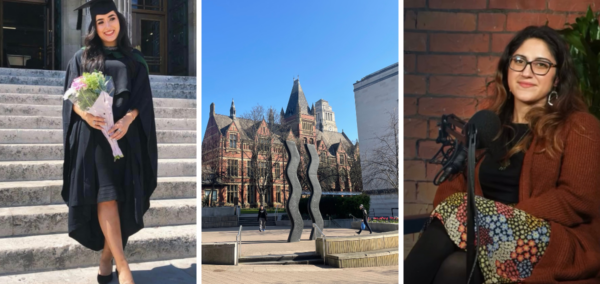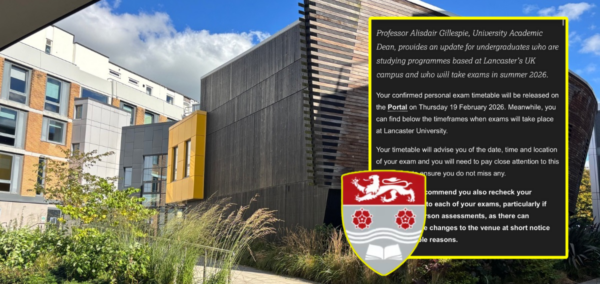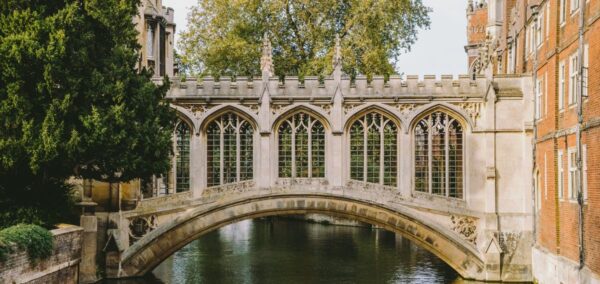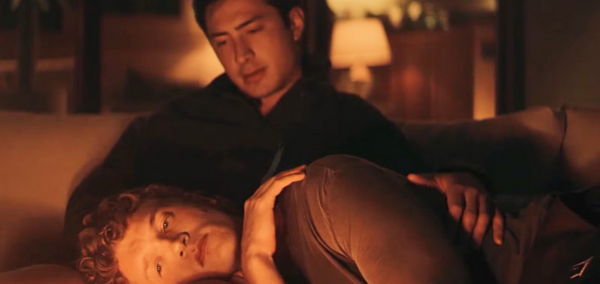
‘It’s not my fault you’re poor’: How classism fuels the Uni of Leeds vs Beckett rivalry
When poverty becomes the punchline in Varsity chants, we need to question what kind of culture Leeds students are facilitating
If you’ve had any exposure to Leeds’ university culture, you probably know that the “Uni of” versus Beckett rivalry is one of students’ most beloved traditions. And, every year since 2004, Varsity transforms that rivalry into a sporting battleground, as the two universities compete in over 100 fixtures across a three day event.
Varsity culminates in the final rugby matches at Headingley Stadium, with 7,000 people attending last year’s game, and this year’s turnout looking equally impressive.
It’s all sounding pretty harmless so far, right? And, just to be clear, I’m not out to ruin anyone’s fun; university pride and spirited competition are worth celebrating. But, what if ostensibly playful camaraderie between institutions has become a cover for something darker, especially in sporting circles?
Some of the most popular chants heard from University of Leeds students, aimed squarely at their Beckett rivals during matches, cross well beyond banter – they’re overtly classist.
One such chant parodies the nursery rhyme Knick-Knack Paddywhack (there are slight variations to this taunt across sports, but there seems to be a consensus from students I’ve spoken to that this is the most commonly used, and it was sung at Varsity this year): “One plus one, two plus two, these are sums you cannot do! With a knick-knack, paddywhack, give a dog a bone, you can’t pay your student loan! Two plus two, three plus three, one day you will work for me…Three plus three, four plus four, it’s not my fault you are poor…”
Most Read
This isn’t the only chant by Uni of Leeds students that centres on explicit mockery of poverty. Though it’s unconfirmed whether the following chants were heard at Varsity last week, they’re heard at other sporting events throughout the year: “What’s that coming over the hill? It’s unemployment, it’s unemployment,” to the tune of Monster by The Automatic. Another crowd-favourite variation includes shouting: “Your dad works for my dad,” to the beat of a popular football chant, Let’s All Have a Disco.
Ah, because nothing screams “future leaders of tomorrow” like mocking someone’s socioeconomic background in green face paint, all whilst downing a pint of Guinness in five seconds flat.
This isn’t the University of Leeds’ first encounter with classist accusations, either. In 2018, the uni made national headlines after a student society hosted a “chav”-themed party. Whilst the backlash was swift, it’s worth noting that just four years later, another “chav”-themed house party was held in Hyde Park. Adding insult to injury, a ski-themed party was hosted by another group of students in the weeks that followed. Even Leeds University Union itself used to hold “chav”-themed club nights at Fruity.

Whichever way we look at it, the reality remains that universities function as bastions for the middle class, often actively excluding or alienating lower-income students. Despite successive waves of expansion in UK higher education, people from working-class backgrounds remain significantly underrepresented at elite institutions, comprising only around 20 per cent of undergraduates across the 24 Russell Group unis.
Even more damning, in 2017, just 7.7 per cent of 18-year-olds starting at the University of Leeds were from the most disadvantaged fifth of areas in the UK. Meanwhile, Leeds Beckett ranks in the UK’s top 10 for admitting students from diverse socioeconomic backgrounds – a commendable achievement, but one that underlines how stratified the system remains.
Where Russell Group unis continue to be overrepresented by white, middle-class students, it’s their non-Russell Group counterparts like Leeds Beckett, formerly Leeds Polytechnic, that are taking on the majority of poorer students who attend university.
Even for those from more disadvantaged backgrounds who do go on to higher education, it can still feel like they’re occupying spaces they were never meant to enter.
A working class student at the University of Leeds, Isobel, told The Leeds Tab that she’s often lonely due to “a lack of community”, and feels as though there’s a general misunderstanding amongst peers about the difficulties she faces. When asked what makes her feel most alienated from more affluent students, she spoke about having to make so many more “sacrifices”.
“Do I want to sacrifice a social life; do I want to be living off pasta and tomato sauce to go to the big day festival everyone’s getting tickets for; can I miss all these seminars and still do okay in my degree because I’ve got to work my part time job?”
Another student, Rosie, expressed anger about the University of Leeds’ accessibility schemes for working class candidates. She argued they do little to achieve parity between students once you’re granted entry to the institution: “It feels like all they do for students from poorer areas is lower the grade boundaries. That’s it. That’s your support. It’s like they think all the support they need to offer is making the pass rate a bit lower for the ‘working-class thickos’ and then once you’ve made it in, that’s it: You’re on your own.”
Dylan, who studies at Leeds Beckett and requested his name be changed, told The Leeds Tab he gets annoyed with himself for feeling “embarrassed” about his university.
“I’m getting a degree just like everyone else, and I’ll be the first in my family to do it. But it just ends up instead of being proud of myself, it’s somehow sort of embarrassing because it’s from the ‘shit’ uni,” he said.

These instances go beyond an internal battle for students from disadvantaged backgrounds; it’s not simply about cultivating self confidence and finding a sense of belonging. Rather, class prejudice is often deeply ingrained in the wider cultural atmosphere of elite institutions. Such realities should trigger the kind of vocal protest and collective action we witness with other injustices but instead, quite shockingly, they’re a weapon wielded for ridicule. Nowhere does the thinly veiled class warfare of student circles feel more palpable than during Varsity, the epicentre of Leeds’ Russell Group versus former polytechnic rivalry. And though the essence of competition isn’t an issue, the way it’s channelled is.
There will be some readers, I’m sure, arguing that people (me, probably) really need to lighten up. You may well be thinking, come on, it’s just a joke! First off, those Beckett students call us all posh c*nts in response, so why does it matter if we call them poor? I don’t see any of them imploring their university to abolish the harmful stereotyping of rich Russell Groupers.
And secondly, using words like “chav”, or even dressing up like a “chav”, isn’t actually classist. Nobody’s demonising the deprived; we’re just taking the piss out of all those wannabe roadmen that hang around on street corners, forcing people to listen to their subpar SoundCloud raps – anyone from any background can be a “chav”!
Such retorts should elicit scepticism at best, but the idea that mocking wealth is the equivalent of mocking poverty is downright false. Where “posh” might sting, it doesn’t carry the same historical weight as centuries of systemic exclusion.
What’s more, whether or not we claim “chav” jokes aren’t about class at all, but represent a type of behaviour, the reality remains that “chav”, and everything it signifies (appearance, accent, music taste, clothing), is rooted in a gross caricature of working class identity. It legitimises those living in poverty as a kind of pathological underclass, and allows more affluent students to laugh at a reality they’ll probably never have to live.
Ultimately, by framing the overrepresentation of working class students at polytechnics and lower-tariff universities as a joke, we’re turning a structural injustice into fodder for ridicule, rather than outrage.
Leeds students often pride themselves on being politically engaged. We protest. We petition. We hold universities to account. Yet when it comes to classism? We laugh. And if it all still seems like harmless banter, we need to ask ourselves: Would we ever accept chants aimed at someone’s sexuality, race or ethnicity? No? Then why does poverty remain fair game?
Supposedly playful camaraderie can be a surprisingly powerful tool for upholding the status quo, and if inequality becomes the punchline, we lose the chance to challenge the very structures we claim to oppose.
This isn’t a call to cancel Varsity, or the Beckett versus “Uni of” rivalry, or even chants in general. But if we want a university culture that’s truly inclusive, we have to stop normalising the mockery of those it already leaves behind.
A spokesperson from Leeds Beckett University said: “Leeds Beckett is very proud of all our students and everything they achieve. We support our sports teams to make sure that all games are played in the true spirit of Varisty.”
The University of Leeds, Leeds University Union and Leeds Beckett’s Students’ Union have not yet responded to requests for comment.





















